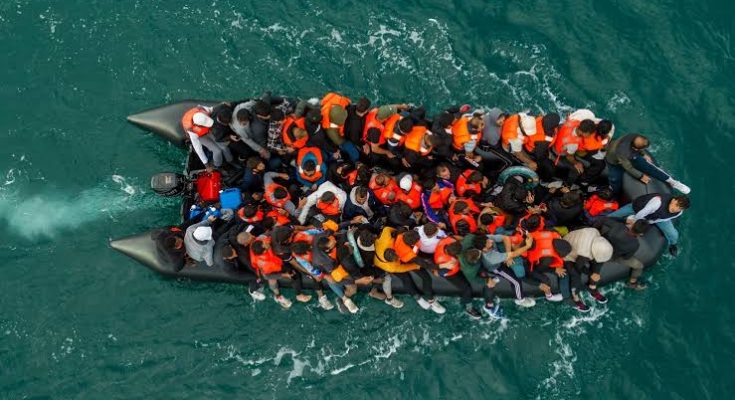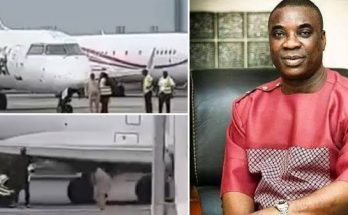AMSTERDAM — In a significant breakthrough in the fight against human trafficking across the English Channel, a Turkish national alleged to be a central supplier of small boats and engines to people-smuggling networks has been apprehended in Amsterdam. The arrest followed a coordinated international operation led by the UK’s National Crime Agency (NCA) with support from Dutch and Belgian authorities. The 44-year-old man, whose identity has not been disclosed, was detained at Schiphol Airport on Wednesday and now faces extradition to Belgium on charges of human smuggling.
The suspect is accused of supplying critical equipment, including engines and boats, to smuggling operations based in northern France, aiding in the illegal transportation of migrants across the Channel to the UK. Authorities believe the man managed a well-organized supply chain, moving materials from Turkey to Germany before their final distribution to criminal networks in northern France.
International Efforts Highlighted in Arrest
UK Prime Minister Sir Keir Starmer hailed the arrest as a “significant piece of the jigsaw” in efforts to curb dangerous Channel crossings but tempered expectations, stating, “I’m not pretending this is the silver bullet.” Starmer emphasized the value of international partnerships in tackling cross-border crime, remarking that the arrest “demonstrates the impact of the UK’s strategy to collaborate with European allies to dismantle smuggling gangs.”
Rob Jones, the NCA’s director general for operations, described the arrest as a “milestone” in one of the agency’s most extensive investigations into organized immigration crime. Jones asserted that the suspect is believed to be a “major supplier” of boats and engines used in “highly dangerous” crossings from Belgium and northern France, posing significant risk to the lives of migrants attempting to reach the UK.
UK Intensifies Efforts to Combat Human Smuggling
The arrest comes as part of a broader UK crackdown on human smuggling. Earlier this month, Prime Minister Starmer announced an additional £75 million to reinforce border security, pledging to “treat people smugglers like terrorists.” This funding is intended to enhance the capacity of UK agencies to intercept illegal crossings and disrupt smuggling networks.
Home Secretary Yvette Cooper echoed the Prime Minister’s remarks, praising the NCA’s role in spearheading the investigation and stressing the importance of global collaboration. “The excellent work of the UK’s National Crime Agency has been critical to this. We will stop at nothing to root out criminal networks wherever we find them,” Cooper stated. She underscored the UK’s commitment to relentless pursuit of traffickers who exploit vulnerable individuals for profit.
A Growing Crisis on the Channel
The apprehension of the Turkish suspect is part of a wider effort by the NCA, which is currently pursuing some 70 active investigations into high-level human trafficking networks and organized immigration crime. The arrest arrives amid alarming statistics showing a record number of migrant crossings and fatalities in 2024. More than 32,000 people have already attempted the perilous journey across the English Channel this year, surpassing the total figure of 29,437 for 2023. Tragically, over 50 lives have been lost so far in 2024 alone.
Just last week, another significant figure in the smuggling network, Iranian national Amanj Hasan Zada, was sentenced to 17 years in prison in the UK. Known as the “best smuggler” among his network, Zada operated an enterprise that advertised Channel crossings on social media platforms like Facebook. The NCA described his operation as “sophisticated” and driven entirely by profit, with scant regard for the lives he put at risk.
The Path Forward: Collaborative Crackdown on Smuggling
For the UK government and its international partners, Wednesday’s arrest represents progress but also underscores the need for a sustained, multifaceted approach to tackling the complex issue of human smuggling. While authorities celebrate this milestone, both Prime Minister Starmer and Home Secretary Cooper acknowledged that more actions are required to disrupt the flow of migrants attempting illegal crossings.
Experts in immigration and human trafficking emphasize the importance of addressing the root causes driving migration, such as conflict, poverty, and human rights abuses in source countries. They argue that while arrests of key players in smuggling networks are critical, they are only part of a broader solution that must also include humanitarian measures, enhanced border controls, and legal pathways for asylum seekers.
With growing political pressure to secure the UK’s borders and reduce illegal crossings, the government remains resolute in its pledge to work alongside European partners to dismantle these dangerous networks. The arrest of this major supplier in Amsterdam, facilitated by cross-border intelligence and cooperation, exemplifies how joint international efforts are essential in making headway against human trafficking across the Channel.
As investigations continue, authorities hope that this arrest will lead to further insights into the operations of these organized crime groups, ultimately enabling a more comprehensive approach to combating the crisis.




